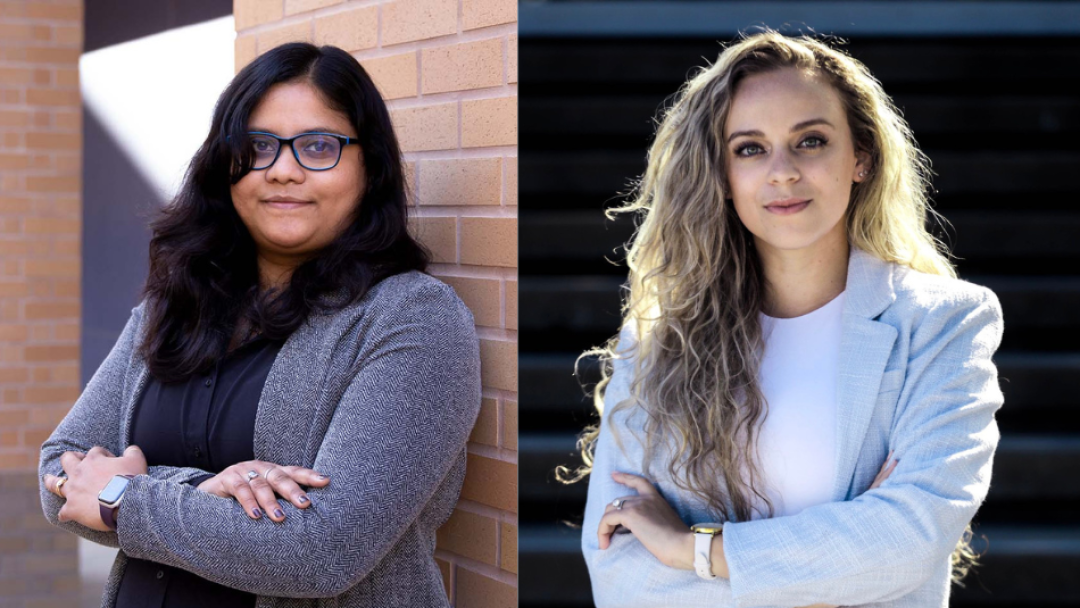
Avipsa Roy and Kaitlin M.H. Winks win recognition
Avipsa Roy, assistant professor of urban planning and public policy, and Kaitlin M.H. Winks, Ph.D. candidate in psychological science, are this year’s recipients of the Dean’s Award for Inclusionary Excellence in Research.
Avipsa Roy
Roy’s research examines access to healthcare during the COVID-19 pandemic. In her article, “A Multicriteria Decision Analysis Framework to Measure Equitable Healthcare Access during COVID-19,” published in the Journal of Transport and Health, she recommends interventions for vulnerable communities.
Vulnerable communities in Los Angeles were disproportionately affected by COVID-19, according to the Centers for Disease Control and Prevention. “The basic curiosity to understand why that was the case and explore which physical and socioeconomic factors contribute to high risk of infections among those disproportionately affected by the pandemic got me interested in carrying out this research,” Roy says.
She employs a sophisticated method for examining her central research question concerning the accessibility of neighborhoods to healthcare. Using quantitative methods, including spatial analyses, Roy’s work goes beyond noting there is variability across neighborhoods in terms of access and identifies critical barriers, including socio-economic and built environment factors, impeding access for residents of historically disadvantaged neighborhoods.
The framework developed from Roy’s study accounts for transportation and socioeconomic barriers to determine healthcare accessibility, which could be used by local authorities for resource planning and identifying potential areas of future outbreaks.
Kaitlin M.H. Winks
Winks, who expects to complete her doctorate next year, is focused on the study of sex trafficking.
“My research is on understanding the roots and mitigating the consequences of violence, with a special focus on youth sex trafficking,” she notes. "I think studying youth sex trafficking is important because all youth should be given the opportunity to succeed (and not suffer) from their circumstances. It's easy to segue away from this topic because the reality of it is devastating. As the #metoo movement has shown us, there are circumstances outside a victim’s control that make them vulnerable to coercion or abuse. This is even more true for the youth I work with. For example, these youth often face risk factors, such as prior abuse and neglect histories, welfare system involvement, or removal from their home. This makes them highly vulnerable to perpetrators' coercion and the likelihood for trafficking to go undetected by others who have the power to intervene, such as first responders, school professionals, or even laypersons themselves."
Winks is focusing on strategies to reduce the consequences of violent behavior on vulnerable populations, including those who have suffered maltreatment or exposure to violence, and those growing up in a chronically stressful home environment. Her dissertation examines methods of enhancing identification of youth who have been victims of commercial sexual exploitation, or sex trafficking.
“If we can educate more people about what this crime is and how it truly looks, we will be better able to intervene earlier, prosecute their perpetrators, and make our communities safer for youth to thrive,” she says.
— Mimi Ko Cruz